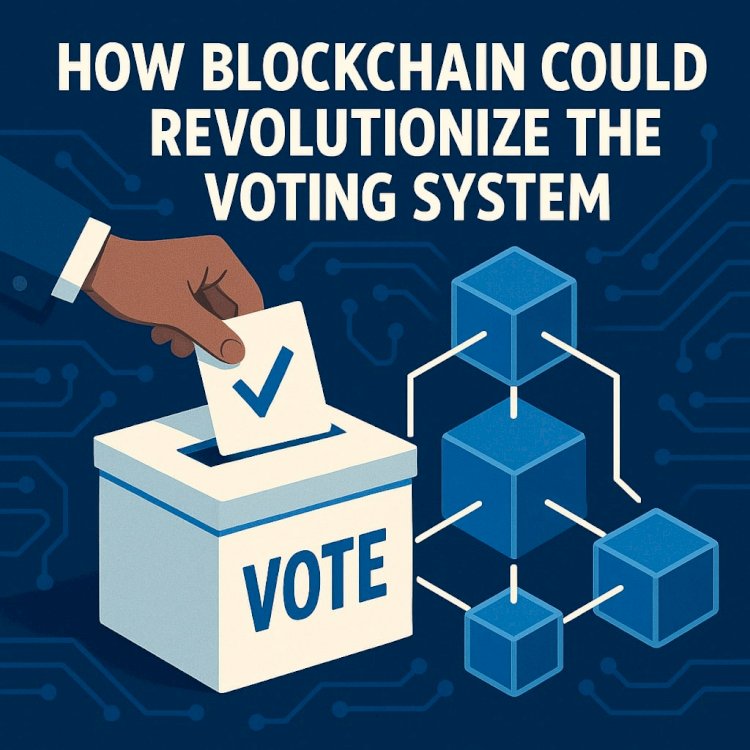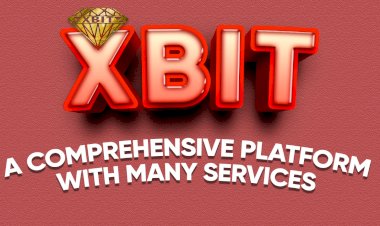How Blockchain Could Revolutionize the Voting System

By Dr. Pooyan Ghamari, Swiss Economist and Visionary
Elections are the cornerstone of democracy. They embody the will of the people, shaping governments, laws, and societies. Yet, despite their importance, traditional voting systems remain plagued with challenges: fraud, voter suppression, accessibility barriers, and a growing lack of trust. In an age where technology permeates nearly every facet of our lives, the question arises—can we build a voting system that is transparent, secure, and universally trusted?
Blockchain technology, with its decentralized and tamper-resistant architecture, offers a transformative answer. By reimagining how votes are cast, recorded, and counted, blockchain has the potential to revolutionize the voting system itself.
The Shortcomings of Current Voting Systems
Traditional election processes—whether paper ballots or centralized electronic machines—face persistent problems:
-
Fraud and manipulation – Ballots can be tampered with, and centralized databases are vulnerable to hacking.
-
Lack of transparency – Citizens often have little visibility into how their votes are counted.
-
Accessibility issues – Millions of people, including those abroad, people with disabilities, or citizens in remote areas, face obstacles in participating.
-
Declining trust – In many countries, voter confidence in election integrity is waning.
A future-proof voting system must address these issues, ensuring security, inclusivity, and transparency without compromising privacy.
Why Blockchain?
Blockchain technology is a distributed ledger that records transactions in a secure, transparent, and immutable way. Applied to elections, it could provide:
-
Transparency – Every vote could be tracked on a public ledger while preserving anonymity.
-
Security – Once recorded, votes cannot be altered, eliminating risks of tampering.
-
Decentralization – Instead of one central authority, multiple nodes validate the process, reducing opportunities for corruption or cyberattacks.
-
Accessibility – With secure digital IDs and blockchain platforms, citizens could vote from anywhere in the world.
This combination of transparency and security is precisely what current systems lack.
Practical Applications of Blockchain Voting
-
Digital Ballots with Anonymity
Blockchain allows for encrypted votes that are linked to verified identities but remain anonymous on the ledger. This ensures both voter privacy and vote authenticity. -
Global Access for Remote Voters
Citizens living abroad, military personnel stationed overseas, or residents in rural areas could vote using secure digital platforms, increasing participation. -
Instant and Trustworthy Results
Blockchain-based systems could tally results in real time while allowing anyone to independently verify the outcome. -
Immutable Records
Every vote cast becomes part of an unchangeable record, drastically reducing the possibility of disputes or recount controversies.
Challenges to Overcome
While blockchain voting is promising, it also faces hurdles:
-
Digital divide – Not all citizens have access to secure devices or stable internet connections.
-
Identity verification – Ensuring that each vote comes from an eligible voter requires robust digital ID systems.
-
Scalability – Blockchain must be capable of handling millions, even billions, of transactions efficiently.
-
Political resistance – Governments and institutions may resist change due to vested interests.
Addressing these challenges requires careful planning, global standards, and pilot programs to prove feasibility.
Economic and Social Implications
From an economist’s perspective, the adoption of blockchain voting extends beyond political reform—it has economic significance as well. Trust in governance is foundational to stability and investment. A transparent voting system would not only strengthen democracies but also boost confidence in institutions, attract investment, and create new opportunities for digital governance industries.
Furthermore, blockchain voting could reduce election costs by minimizing logistical expenses such as ballot printing, polling stations, and manual counting.
Blockchain technology offers a vision of democracy that is more secure, accessible, and transparent than ever before. While significant challenges remain, the potential benefits far outweigh the risks. By embracing blockchain, societies can restore trust in elections, empower disenfranchised voters, and bring democracy into the digital age.
In the years to come, nations that pioneer blockchain-based voting will not only enhance political legitimacy but also set new global standards for governance. The revolution in voting is not a distant idea—it is a possibility within reach.

 content-team
content-team 


















